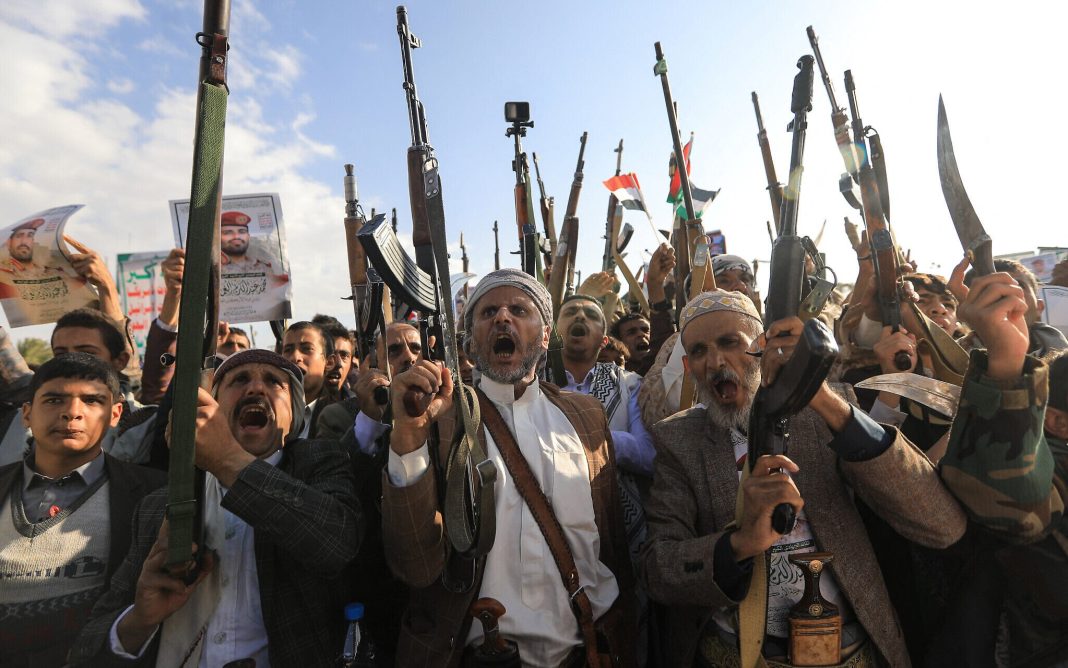The intricate geopolitical tapestry of the Middle East has once again been stained with a development that reverberates with grave implications for regional stability and human rights. In a recent and deeply concerning move, a Houthi-run court in Yemen has sentenced 17 individuals to death, accusing them of spying for rival powers including Israel, the United States, and Saudi Arabia. This verdict, announced amidst the ongoing conflict and humanitarian crisis in Yemen, underscores the perilous complexities of the region and raises significant questions about judicial processes in conflict zones.
For India, a nation with deep historical ties to the Middle East, substantial economic interests, and a vested stake in global maritime security, such developments are watched with keen interest. The Red Sea, a vital artery for international trade and a conduit for a significant portion of India’s energy imports, lies directly in the theatre of Houthi influence. The escalating tensions and severe judicial actions not only add another layer of volatility but also prompt reflection on the broader regional security architecture and the urgent need for de-escalation.
The Verdict: Allegations and International Outcry
The specific charges leveled against the 17 individuals vary, but broadly encompass accusations of collaborating with hostile intelligence agencies to undermine the Houthi movement’s authority. Houthi media outlets reported that the convicted individuals were involved in operations ranging from providing intelligence on military movements to engaging in espionage activities for the US, Israeli, and Saudi Arabian governments. These allegations, typical of conflict narratives, are difficult to verify independently given the lack of access and transparency in Houthi-controlled areas.
The death sentences have predictably drawn strong condemnation from international human rights organizations and several Western governments. Concerns have been widely raised regarding the fairness of the trials, the lack of due process, and the potential for politically motivated convictions. Human rights groups routinely highlight the non-transparent nature of judicial proceedings in Houthi-controlled territories, where legal safeguards are often compromised, and defendants may not have access to adequate legal representation or the opportunity to appeal effectively.
“The imposition of death sentences following trials that fall far short of international fair trial standards is a deeply alarming development,” stated a spokesperson for a prominent international human rights watchdog. “It further exacerbates the human rights crisis in Yemen and serves as a stark reminder of the urgent need for all parties to the conflict to uphold humanitarian law and ensure judicial integrity.” This sentiment is widely echoed across the global community, urging restraint and adherence to universal human rights principles.
Geopolitical Ripple Effects and India’s Concerns
The Houthi movement, officially known as Ansar Allah, has been a central player in Yemen’s devastating civil war since 2014, fighting against the internationally recognized government backed by a Saudi-led coalition. Supported by Iran, the Houthis control large swaths of northern Yemen, including the capital Sana’a. Their increasing assertiveness, particularly their attacks on international shipping in the Red Sea following the Gaza conflict, has already significantly complicated global trade routes and heightened regional instability.
The death sentences, therefore, are not merely an internal judicial matter but possess profound geopolitical ramifications. They signal a hardening of the Houthi stance, potentially complicating any future peace negotiations and deepening the chasm between the warring factions. For countries like India, the stability of the Red Sea and the wider Gulf region is paramount. India relies heavily on this corridor for its oil imports from Saudi Arabia and other Gulf nations, and any disruption can have immediate economic consequences.
Furthermore, the allegations of spying for Israel and the US resonate particularly strongly in the current climate of heightened tensions across the Middle East. With the ongoing conflict in Gaza and its spillover effects, any actions perceived as an escalation or targeting of specific nations risk broadening the scope of conflict. India, maintaining a policy of non-interference and advocating for peaceful resolutions, consistently calls for de-escalation and a diplomatic approach to resolve the complex issues plaguing the region. India’s maritime presence in the region, aimed at ensuring the safety of trade, underscores its commitment to regional stability.
A Call for Restraint and Humanitarian Consideration
The sentencing of 17 individuals to death in Yemen serves as a grim reminder of the profound human cost of protracted conflicts. Beyond the geopolitical chess game, these verdicts represent individual lives, families, and communities caught in the crossfire of a brutal war. The international community, including India, must continue to advocate for adherence to international humanitarian law and the protection of civilian populations and fair judicial processes, even in times of conflict.
As Yemen continues to reel from one of the world’s worst humanitarian crises, with millions facing starvation and displacement, actions that further inflame tensions only compound the suffering. A sustainable and peaceful resolution to the Yemeni conflict remains elusive, yet it is more critical than ever. The path forward demands dialogue, compromise, and a genuine commitment from all parties to prioritize peace over protracted conflict, ensuring that justice, when delivered, adheres to universally accepted principles of fairness and human dignity.




